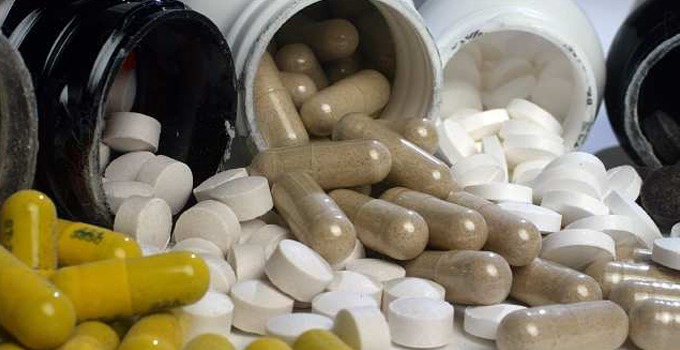 Plato rightly said, “Excess generally causes reaction and produces a change in the opposite direction, whether it be in seasons, or in individuals, or in governments”.
Plato rightly said, “Excess generally causes reaction and produces a change in the opposite direction, whether it be in seasons, or in individuals, or in governments”.
We all crave for healthy and fulfilling lives. In order to achieve this, we try to do our best in matters of food, clothing, shelter; in short, have a good standard of living. But, what about when we go overboard while taking care of ourselves? Overdoing something which is usually good for our health also, has it’s own ill-effects. Let’s take a look at some of the ‘healthy’ things that many of us tend to go high on:-
- Excessive drinking of water: Almost all of our major body systems depend on water to function properly. Optimum hydration helps in flushing toxins out of the body, preventing digestive ailments like acidity and constipation, regulating body temperature and many other functions. Many a times, people are low on water intake and are dehydrated. But, there are also instances where people tend to go too much on water intake causing a condition known as over hydration. Over hydration is a potentially deadly condition that causes severe imbalance between water and sodium in the body. People, consciously or unconsciously, can go high on water. Especially, when they sweat a lot, increased thirst due to uncontrolled diabetes, some psychiatric conditions like Schizophrenia can cause compulsive drinking of water, certain medications can cause dry mouth and make the person feel thirsty. Also, over hydration due to water retention (inability of the body to get rid of excessive water) can result due to underlying medical conditions such as kidney problems, liver cirrhosis, congestive heart failure and SIADH (Syndrome of Inappropriate Antidiuretic Hormone). Symptoms of over hydration may include headache, nausea and vomiting, confused or disoriented state of mind, loss of sleep as people frequently get up in the night to go to the loo. If not treated early, over hydration may lead to a hyponatremia (dangerously low levels of sodium in blood) leading to much severe conditions like seizures, muscle cramps or spasms, unconsciousness and coma. The best way to ensure optimum hydration is to drink a glass of water at regular intervals in a day. 8-10 glasses of water per day is usually needed for good hydration but, mostly it differs from person to person. Over hydration can be dealt with by treating the underlying medical conditions and consulting a nutritionist about your hydration status.
- Excessive exercise: A routine of regular exercising gives us health benefits like improved cardiovascular endurance, muscular endurance, musculoskeletal strength and ideal body composition. But, exercising too much can prove detrimental to health. ‘Overtraining Syndrome’ is common among fitness enthusiasts and athletes. It may manifest itself through various physical and psychological symptoms. The physical symptoms of overtraining syndrome are unexplained weight loss, decreased appetite, excessive thirst indicating dehydration, cardiovascular complications(increased Resting Heart Rate), decreased immunity, muscle soreness, increased occurrence of injuries, decreased performance in sports and day to day activities.
Psychological symptoms include fatigue, irritability, disturbed sleep patterns, apathy and hostility. Levels of stress hormones (cortisol) increase and testosterone levels decrease. The adverse effects are seen in both, men and women. Overtraining syndrome can be avoided by following a proper training program with compulsory resting days. Medical treatment for the physical and psychological symptoms.
- Excessive calorie control in meals: Calorie counting is termed as an eating disorder. It’s not about how many calories we consume but, what quality of calories we are consuming. For eg; we think that low-fat yogurt is healthier than full-fat yogurt as it has less calories. Whereas, the truth is quite opposite. Low-fat yogurt is less in fat but, high on sugars. Fat soluble vitamins A, D, E, and K are lost when you remove the fat. Similar case with skim milk and regular milk. Skim milk is low-fat but, also completely rid of Vitamins A and D which the normal milk is rich in. They may contain added Vitamins but, they are synthetic and harmful. Egg yolk is discarded due to high fat and cholesterol content but, the yolk is almost twice as rich in all the nutrients as the egg white; the egg yolk can resolve most of the common nutrient deficiencies. Also, these so-called ‘low-fat’, ‘low-sugar’ foods cost more than their regular counterparts. Calorie is not what builds up the fat in your body; it is simply the unit of energy that our body uses for it’s functions. Think about building muscle because, more muscle will raise the body BMR and burn calories for energy throughout the day. Moreover, calorie counting leads to mental stress and does not let you enjoy your meals. The solution to this is quality check of foods, mindful eating and portion control.
- Excessive consumption of fruits, fruit juices and dried fruits: Fruits are packed with vitamins, minerals, water, antioxidants and fiber. Daily consumption of fruits gives us many health benefits. But, over-consumption has it’s own ill effects. Fruits are nutritious but, also high on sugars. Fruit juices and dried fruits contain denser amount of sugars than the fresh, whole fruits. Overeating may lead to high blood glucose levels and eventually the unused calories go into fat store. Too much sugars can also increase acidity. Fruit contains fiber which if consumed too much, can cause gastrointestinal discomfort like cramping, gas, bloating and loose motions. Fruits are simple carbohydrates lacking amino acids and essential fatty acids so, cannot be considered as complete food. 1 or 2 servings of fruits per day can be recommended. Include a variety of fruits in the diet.
- Excessive fiber intake: Fiber is found in whole grains, fruits and vegetables. It is needed for healthy digestion process. Fiber gives satiety for longer time and prevents constipation. But, too much of it can cause several health problems. Fiber cannot be easily digested so, too much of it can cause cramping. Fiber speeds up the passage of the food in the gut and too much of it can speed up the passage too fast leading to diarrhea. Too much of fiber with less water intake can make you constipated. There can also be , gas, bloating and flatulence. Excessive fiber can lead to malabsorption of certain nutrients like calcium, iron, zinc and magnesium. The worst effect of consuming too much of fiber can be intestinal blockage and may also require surgery. Have both, soluble and insoluble fiber, equally, and adequate amount of water.
- Excessive sleeping/resting: Many of us think about compensating for the weeks’ lost hours of sleep by oversleeping at the weekends. A good night’s sleep is very much essential for good health but, oversleeping comes with it’s own share of adverse effects. Along with the quantity of the sleep, the quality of the sleep also matters. If you try to compensate low quality of sleep with high quantity of sleep, you will end up feeling more tired. Sleeping too much can lead to many health problems like obesity, heart disease, diabetes and depression. It can slow down the brain functioning. According to WebMD research it has been found that sleeping for more than 8 hours can shorten the span of life.
These are some of the healthy things that we over do. In my next blog part 2 we will see how we overdo ‘unhealthy’ things.
To be continued…….




